
The Enchanting Beara Peninsula
The Beara Peninsula, nestled in southwest Ireland, offers a mesmerizing blend of rugged landscapes, charming villages, and a rich cultural tapestry. Stretching from Kenmare to Glengarriff, this less-traveled gem is perfect for those seeking a serene and authentic Irish experience. The peninsula is renowned for its breathtaking coastal drives, particularly the Ring of Beara, which unfolds a series of dramatic cliffs, secluded beaches, and panoramic sea views. The Beara Peninsula is steeped in history, from ancient stone circles to the ruins of Dunboy Castle. The region's vibrant heritage is also evident in its local festivals, traditional music sessions, and warm-hearted people. Visitors can explore the quaint villages of Allihies, famous for its copper mines, and Eyeries, with its colorful houses and stunning vistas. Outdoor enthusiasts will find no shortage of activities, including hiking the Beara Way, a long-distance trail that winds through mountains, valleys, and along the coastline. The peninsula is also a haven for cycling, fishing, and kayaking. And for those seeking tranquility, the tranquil gardens of Derreen and the peaceful islands of Dursey, accessible by Ireland's only cable car, offer a perfect escape. A visit to the Beara Peninsula promises an unforgettable journey through one of Ireland's most picturesque and unspoiled regions, where every turn reveals a new story and every view takes your breath away.
Local tips in Beara Peninsula
- Drive the Ring of Beara for stunning coastal views and less traffic compared to the Ring of Kerry.
- Visit the colorful village of Eyeries for picturesque photo opportunities.
- Take the cable car to Dursey Island for a unique adventure and breathtaking scenery.
- Hike the Beara Way for a mix of mountain, valley, and coastal landscapes.
- Explore the ancient stone circles and the ruins of Dunboy Castle to connect with the region's rich history.
The Enchanting Beara Peninsula
The Beara Peninsula, nestled in southwest Ireland, offers a mesmerizing blend of rugged landscapes, charming villages, and a rich cultural tapestry. Stretching from Kenmare to Glengarriff, this less-traveled gem is perfect for those seeking a serene and authentic Irish experience. The peninsula is renowned for its breathtaking coastal drives, particularly the Ring of Beara, which unfolds a series of dramatic cliffs, secluded beaches, and panoramic sea views. The Beara Peninsula is steeped in history, from ancient stone circles to the ruins of Dunboy Castle. The region's vibrant heritage is also evident in its local festivals, traditional music sessions, and warm-hearted people. Visitors can explore the quaint villages of Allihies, famous for its copper mines, and Eyeries, with its colorful houses and stunning vistas. Outdoor enthusiasts will find no shortage of activities, including hiking the Beara Way, a long-distance trail that winds through mountains, valleys, and along the coastline. The peninsula is also a haven for cycling, fishing, and kayaking. And for those seeking tranquility, the tranquil gardens of Derreen and the peaceful islands of Dursey, accessible by Ireland's only cable car, offer a perfect escape. A visit to the Beara Peninsula promises an unforgettable journey through one of Ireland's most picturesque and unspoiled regions, where every turn reveals a new story and every view takes your breath away.
When is the best time to go to Beara Peninsula?
Iconic landmarks you can’t miss
Gleninchaquin Park
Discover Gleninchaquin Park: A breathtaking glacial valley in County Kerry with waterfalls, lakes, and scenic hiking trails for all levels.
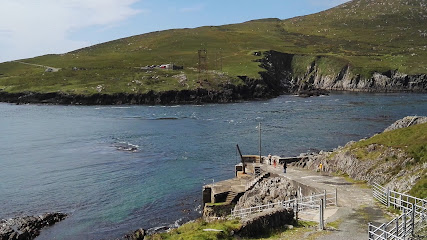
Healy Pass
Experience the wild beauty of Ireland on the Healy Pass: a historic mountain road offering breathtaking views and an unforgettable journey.
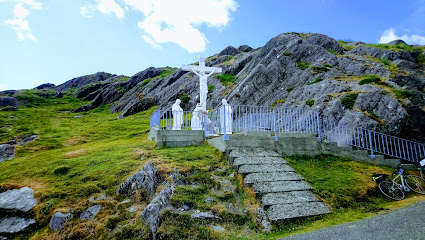
The Ewe Experience
Discover Ireland's only interactive sculpture garden in Glengarriff, where nature, art, and imagination intertwine for an unforgettable experience.
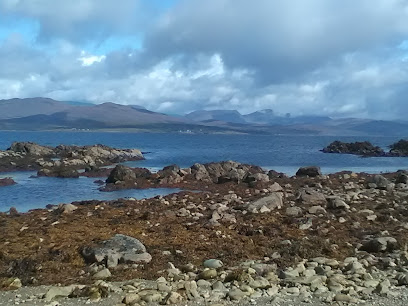
Ballydonegan Beach Allihies
Discover Ballydonegan Beach: where mining history meets coastal beauty on Ireland's Wild Atlantic Way. A unique landscape shaped by time.
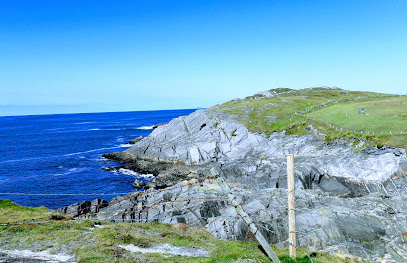
Bamboo Park(Páirc Bambú)
Discover tranquility at Bamboo Park in West Cork: a unique garden with diverse bamboo, peaceful paths, and stunning natural beauty.
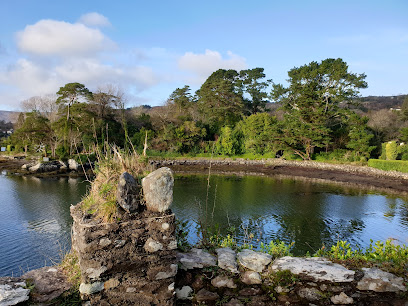
Derreen Garden(Gairdín Derreen)
Explore the lush beauty of Derreen Garden, an exquisite botanical oasis nestled in the stunning Beara Peninsula of County Kerry, Ireland.
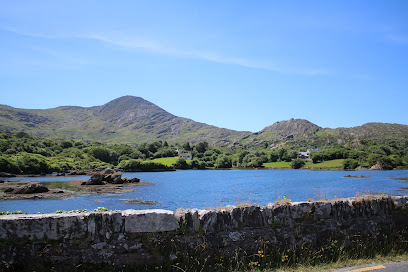
Garnish Island
Discover Garnish Island: A stunning island garden in Glengarriff Bay with exotic plants, historical architecture, and breathtaking scenery.
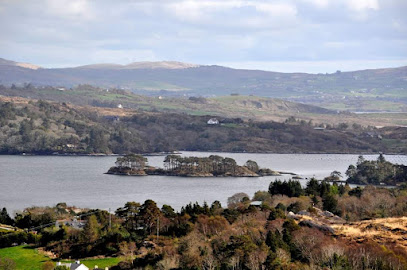
Priest's Leap
Experience the thrill of Priest's Leap: a legendary mountain pass with stunning views on the Cork-Kerry border.
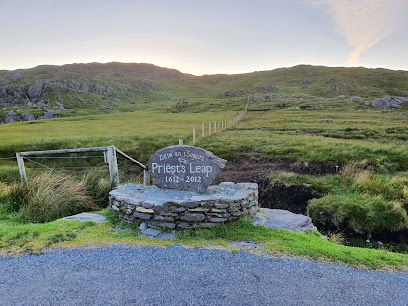
Dursey Boat Trips
Discover the wild beauty of Dursey Island and the Beara Peninsula on an unforgettable boat trip. Explore history, wildlife, and stunning coastal scenery.
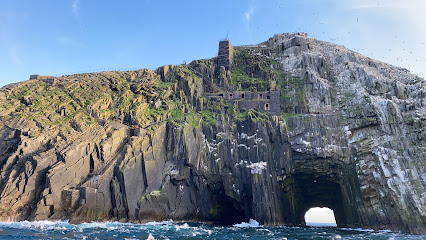
Ardgroom Stone Circle
Explore the ancient Ardgroom Stone Circle in County Cork, a Bronze Age monument offering a unique glimpse into Ireland's prehistoric past.
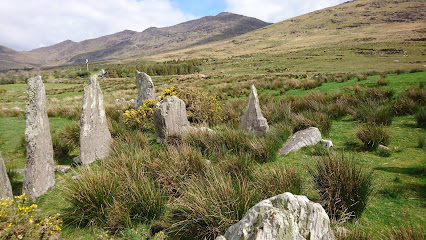
Derreenataggart Stone Circle
Explore the ancient Derreenataggart Stone Circle in County Cork, a captivating historical landmark showcasing Ireland's rich megalithic heritage.
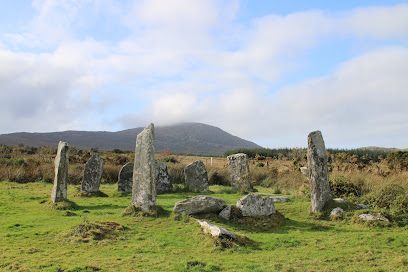
Bere Island
Discover Bere Island: A West Cork gem with ancient history, stunning scenery & tranquil island life. Perfect for exploring the Wild Atlantic Way.
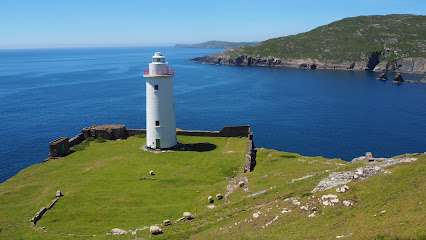
Beara way
Hike the Beara Way: Discover rugged beauty, ancient history, and charming villages on Ireland's stunning Beara Peninsula. A walker's paradise!
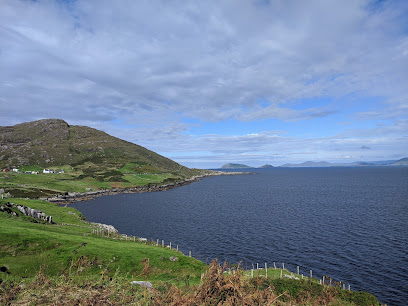
The Bere Island Heritage & Information centre
Explore the rich history and natural beauty of Bere Island at the Heritage & Information Centre, a captivating museum in County Cork.
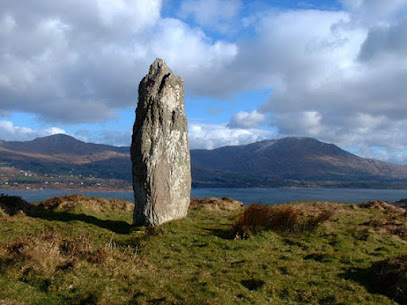
Caha Pass
Drive through the rugged Caha Mountains on the N71, and experience breathtaking panoramic views of Ireland's stunning natural beauty.
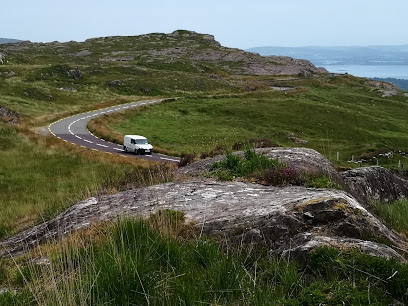
Unmissable attractions to see
Bantry House
Discover history and stunning scenery at Bantry House, a stately home on the Wild Atlantic Way with breathtaking views of Bantry Bay.

Ballydonegan Beach Allihies
Discover Ballydonegan Beach: where mining history meets coastal beauty on Ireland's Wild Atlantic Way in County Cork.
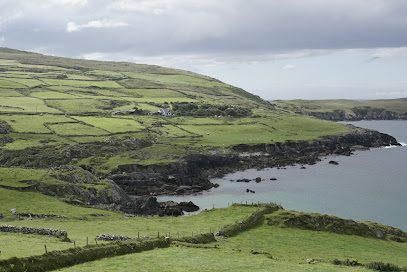
Bamboo Park(Páirc Bambú)
Discover exotic bamboo, tranquil gardens, and stunning harbor views at this unique West Cork park. A serene escape for nature lovers.
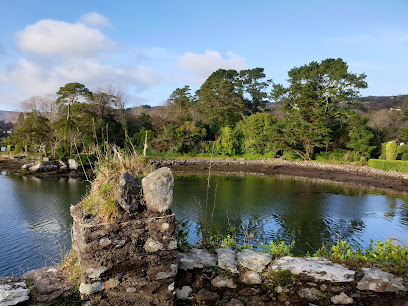
Killarney Racecourse & Ross Golf Course
Experience the thrill of horse racing amidst the stunning scenery of Killarney National Park. A unique Irish tradition since 1822.
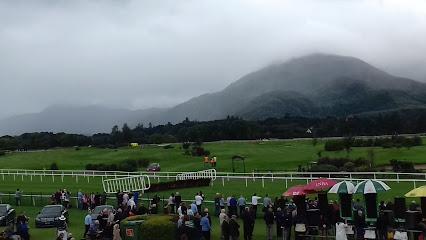
Dursey Boat Trips
Discover the wild beauty of the Beara Peninsula with Dursey Boat Trips: Islands, lighthouses, wildlife, and history await on the Wild Atlantic Way.
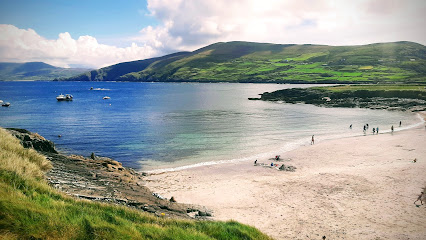
Snave Pier, Ballylickey (Cé Snave)
Discover the serene beauty of Snave Pier in Ballylickey, County Cork: a perfect coastal escape for nature lovers and those seeking tranquility.
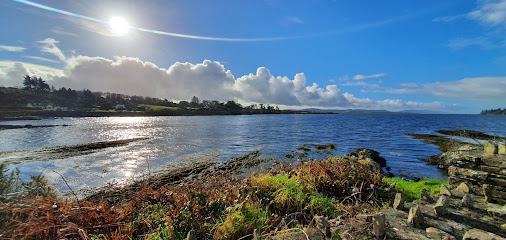
Cuas Pier Caves
Explore the stunning Cuas Pier Caves near Ardgroom, where the wild Atlantic meets the rugged coast of the Beara Peninsula.
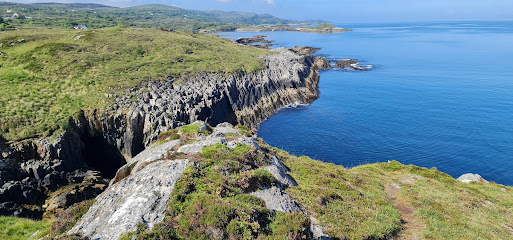
Ardgroom Stone Circle
Discover the ancient mysteries of Ardgroom Stone Circle in County Cork, Ireland, offering a glimpse into the Bronze Age.
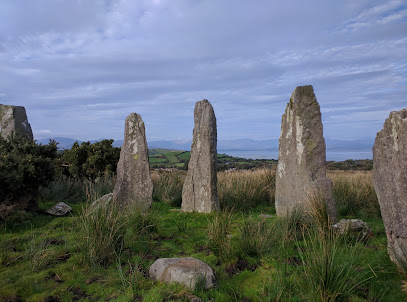
Sheep's Head
Discover the unspoiled beauty of Sheep's Head Peninsula in West Cork, Ireland, with dramatic coastal walks and panoramic Atlantic views.
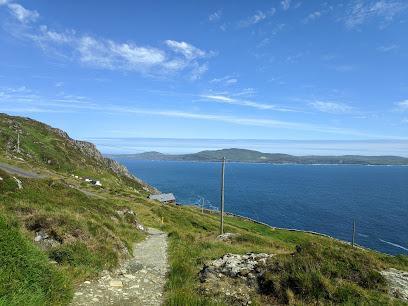
Derreenataggart Stone Circle
Explore the ancient mysteries of Ireland at the Derreenataggart Stone Circle in West Cork, a captivating journey into the island's prehistoric past.
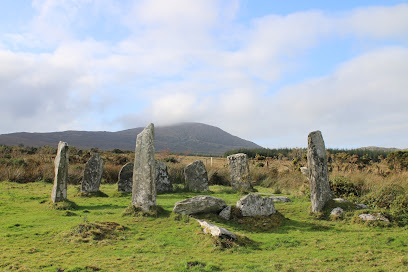
Killarney Races
Experience the thrill of horse racing amidst breathtaking scenery at Killarney Racecourse, a gem in the heart of County Kerry.
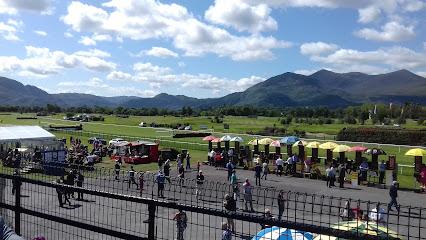
Wild Atlantic Way Discovery Point @Dooneen Scenic viewpoint
Discover the historic Dooneen Pier on the Wild Atlantic Way: stunning coastal views, rich mining heritage, and a peaceful escape in County Cork.
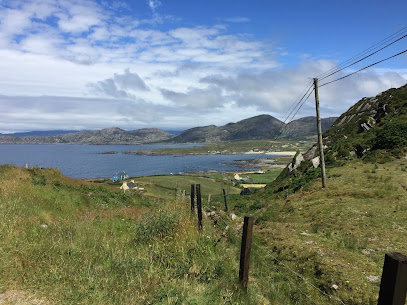
Cashelkeelty Stone Circles
Discover ancient mysteries at Cashelkeelty Stone Circles on Ireland's Beara Peninsula, where history and breathtaking scenery converge.
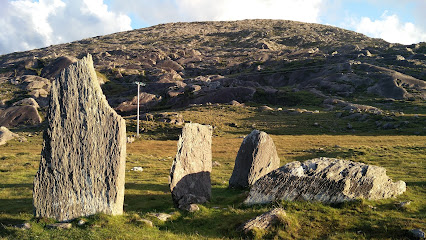
Pooleen Wood
Discover Pooleen Wood in Glengarriff: A serene nature escape with ancient woodlands, a cascading waterfall, and diverse wildlife in County Cork.
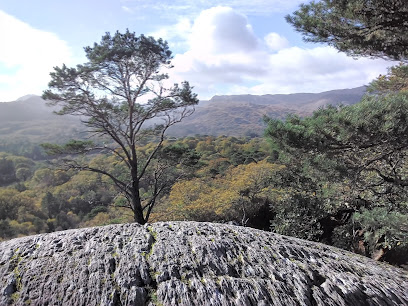
Beara way
Discover the wild beauty and ancient history of Ireland's Beara Peninsula on this stunning coastal walking trail.
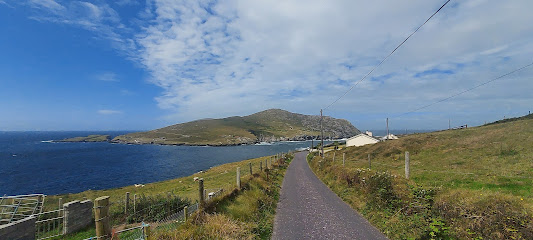
Essential places to dine
PF McCarthy's Bar & Restaurant
Experience authentic Irish hospitality at PF McCarthy's Bar & Restaurant in Kenmare - where delicious food meets vibrant atmosphere.
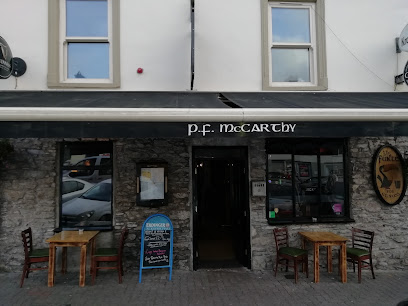
O'Carroll's Cove Restaurant & Bar
Discover O'Carroll's Cove Restaurant & Bar - where stunning views meet exceptional Irish cuisine along the iconic Ring of Kerry.
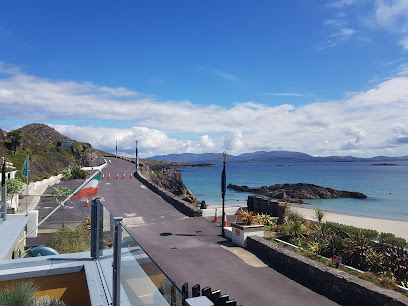
O Donnabhain's
Experience authentic Irish cuisine and vibrant live music at O Donnabhain's in Kenmare - your gateway to local culture!
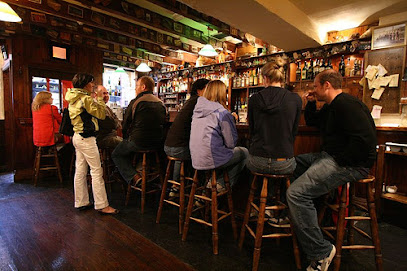
Davitt's Kenmare
Savor authentic Irish cuisine at Davitt's Kenmare – where culinary excellence meets cozy accommodations in scenic Co. Kerry.
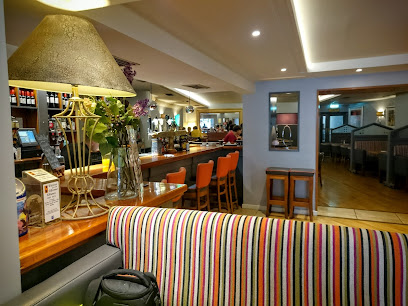
Murphy's Restaurant
Discover authentic Irish cuisine at Murphy's Restaurant in Castletown-Bearhaven – where local flavors meet warm hospitality.
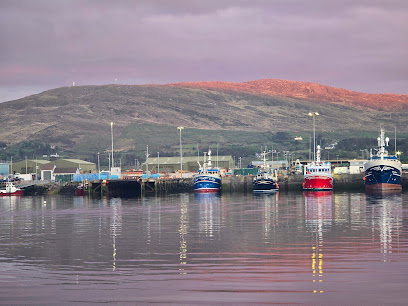
Park Hotel Kenmare
Discover unparalleled luxury at Park Hotel Kenmare—an enchanting blend of fine dining, lavish accommodations, and serene spa experiences amidst stunning Irish landscapes.

Kenmare Brewhouse
Experience authentic Irish hospitality at Kenmare Brewhouse with delicious cuisine and local brews in the heart of scenic Kenmare.
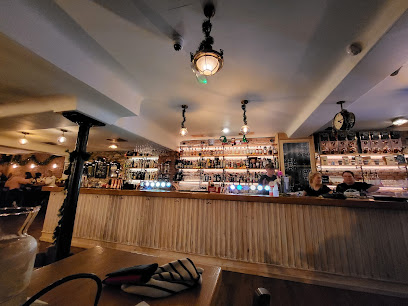
The Village Kitchen
Experience authentic Irish cuisine at The Village Kitchen in Sneem - where local ingredients meet warm hospitality.
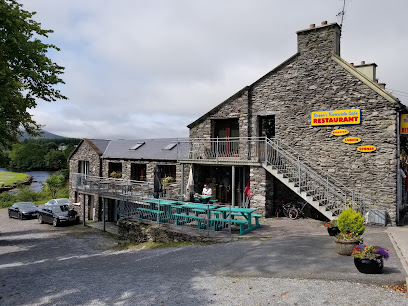
Mulcahys
Discover culinary excellence at Mulcahys in Kenmare, where local flavors meet modern gastronomy for an unforgettable dining experience.
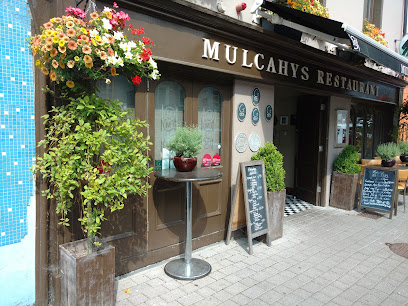
Lynch's on the Pier
Experience exquisite seafood dining with stunning harbor views at Lynch's on the Pier in Castletown-Bearhaven.
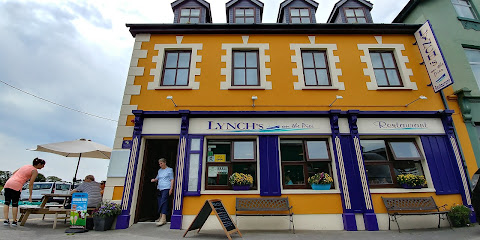
Josie's Lakeview House
Discover Josie's Lakeview House: A culinary oasis in County Kerry with breathtaking views and delicious Irish cuisine.
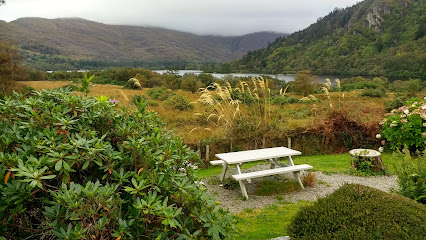
No. 35 Kenmare Restaurant
Discover the heart of Irish cuisine at No. 35 Kenmare Restaurant – where local flavors meet warm hospitality in scenic County Kerry.
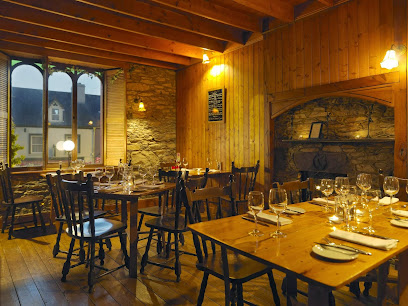
The Blue Bull
Discover the flavors of Ireland at The Blue Bull in Sneem - where local ingredients meet warm hospitality.
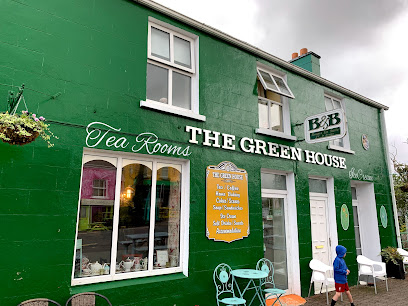
Sailor Bar, Kenmare
Experience authentic Irish hospitality at Sailor Bar in Kenmare—where great food meets stunning scenery.
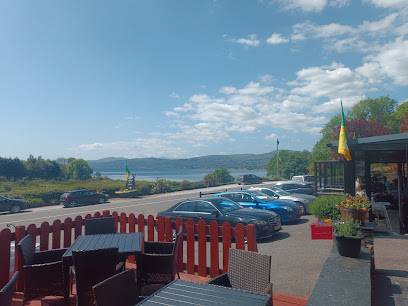
The Boathouse Bistro
Discover exquisite dining at The Boathouse Bistro, where local flavors meet breathtaking views in County Kerry.
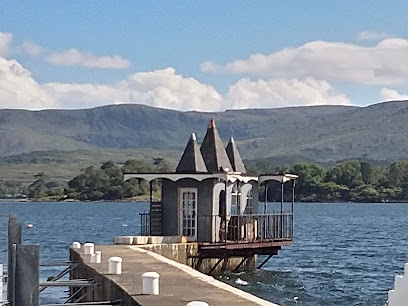
Markets, malls and hidden boutiques
Quill's Woollen Market
Explore Quill's Woollen Market in Glengarriff for the finest selection of authentic Irish gifts, sweaters, and textiles, celebrating local craftsmanship.
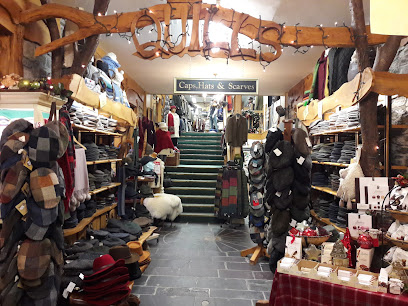
Adrigole Arts
Experience the blend of local crafts, art, and coffee in the heart of County Cork at Adrigole Arts, a must-visit for every tourist.
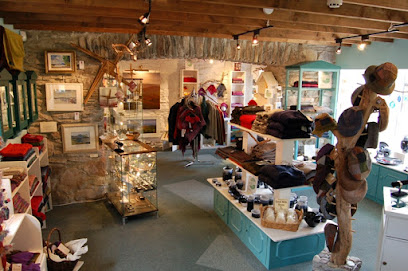
Spar
Discover the charm of Spar in Castletown-Bearhaven, your go-to grocery store for local flavors and everyday essentials.
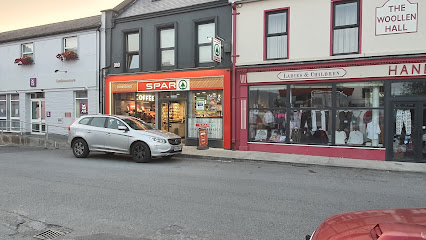
The White Room
Discover unique home goods and charming children's clothing at The White Room in Kenmare, where Irish craftsmanship meets style and comfort.
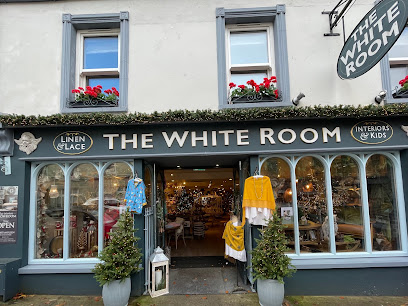
Finnegan's Corner
Discover a unique blend of toys, clothing, and outdoor gear at Finnegan's Corner, the charming store in Kenmare, Co. Kerry.
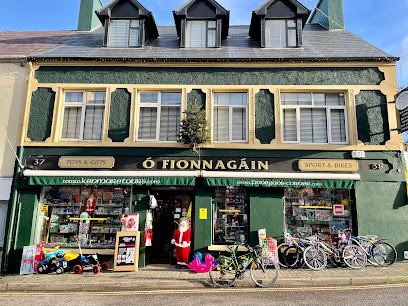
Sola Boutique
Discover unique women's fashion at Sola Boutique in Bantry, where quality meets contemporary style in a charming setting.
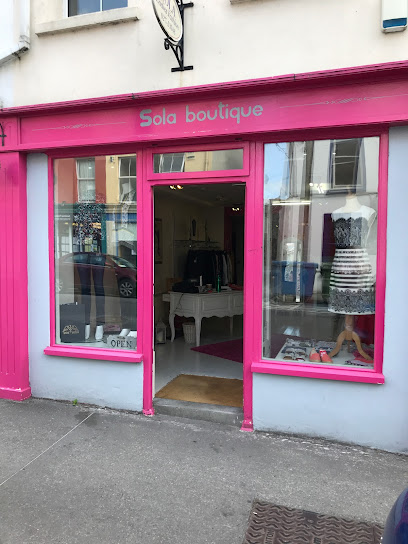
Milleens Cheese Ltd.
Discover the rich flavors of artisan cheese at Milleens Cheese Ltd. in the scenic Beara Peninsula, County Cork, Ireland.
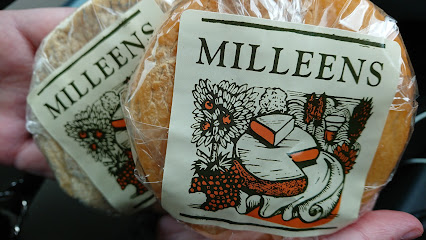
The Weavers Shop
Discover authentic Irish craftsmanship at The Weavers Shop, where handmade treasures await in the heart of Co. Kerry.
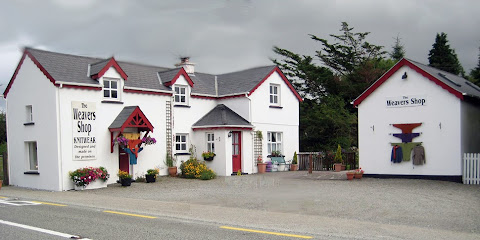
Foley's Irish Crafts
Explore Foley's Irish Crafts in Kenmare for authentic Irish gifts and handcrafted treasures that capture the spirit of Ireland.
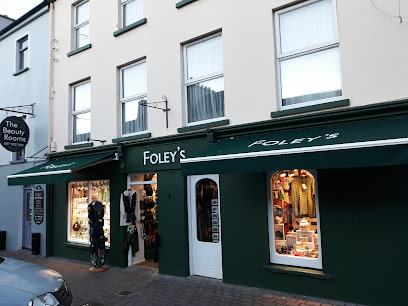
Weavers of Ireland
Explore Weavers of Ireland in Glengarriff for unique Irish gifts that showcase exquisite craftsmanship and rich cultural heritage.
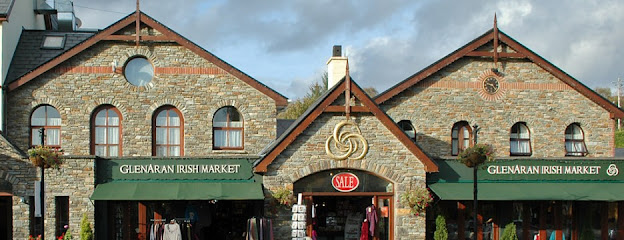
Daybreak Convenience Store
Discover local flavors and essentials at Daybreak Convenience Store in Derrymihin West, your go-to grocery stop in scenic Co. Cork.
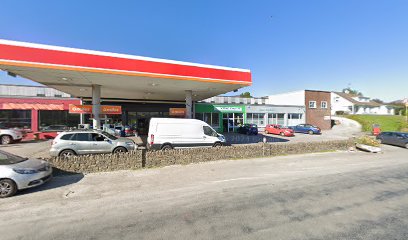
Simplicity Boutique
Discover unique fashion and handcrafted jewelry at Simplicity Boutique in Kenmare, a stylish haven for tourists seeking local elegance.
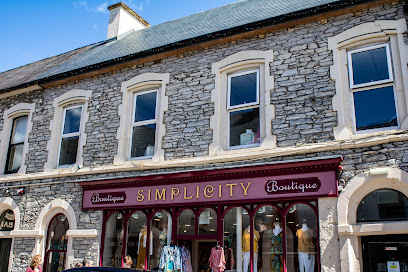
Nest
Explore Nest in Kenmare, Co. Kerry: Your go-to gift shop for unique finds, clothing, baby items, and toys, all in a charming setting.
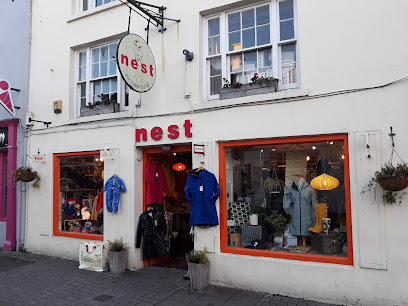
Quills Irish Gift Store
Discover the heart of Irish culture at Quills Irish Gift Store in Kenmare, where unique clothing and authentic gifts await every visitor.
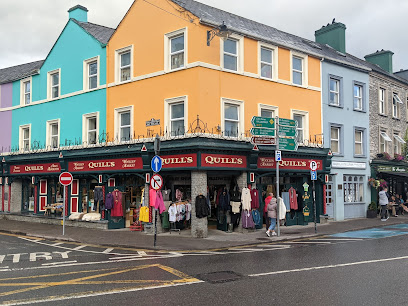
The Spinning Wheel, Glengarriff
Discover unique handcrafted gifts and local crafts at The Spinning Wheel in Glengarriff, a charming gift shop in County Cork, Ireland.
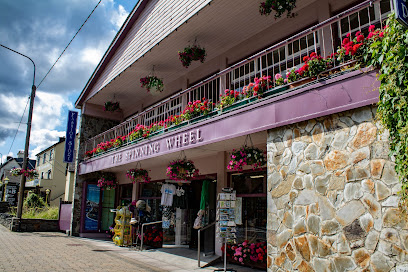
Essential bars & hidden hideouts
MacCarthy's Bar
Discover the heart of Irish culture at MacCarthy's Bar, a charming pub in Castletown-Bearhaven offering traditional food, local brews, and live music.
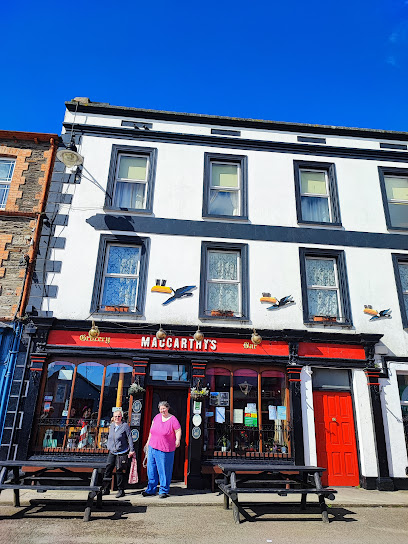
O'Neill's Bar & Restaurant
Experience the heart of Irish culture at O'Neill's Bar & Restaurant in Allihies, where delightful cuisine meets stunning coastal views.
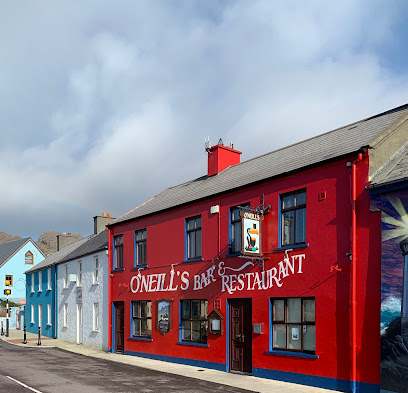
The Wild Atlantic Bar
Experience the true essence of Irish hospitality at The Wild Atlantic Bar, a cozy retreat on the breathtaking Beara Peninsula.
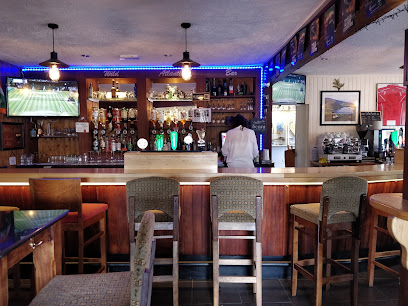
Berehaven Restaurant & Bar
Savor the fresh flavors of West Cork at Berehaven Restaurant & Bar, where local ingredients meet breathtaking views.
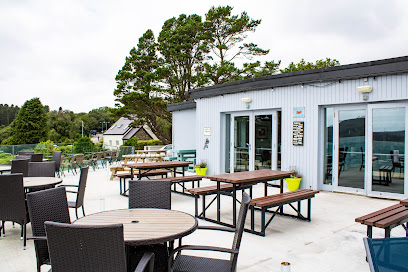
Causkeys Bar
Discover the charm of Causkeys Bar in Eyeries, Co. Cork – a perfect blend of local flavor, friendly service, and inviting atmosphere.
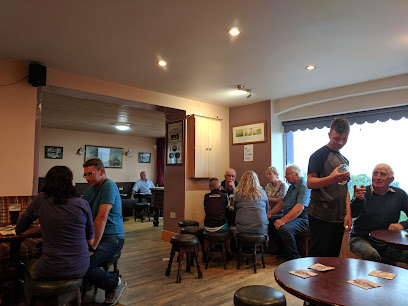
The Village inn
Experience the authentic charm of The Village Inn in Ardgroom Outward, a quintessential Irish pub offering traditional cuisine and local brews.
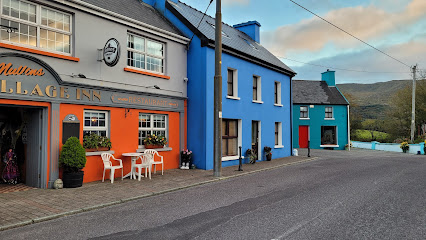
The Urhan Inn Pub
Experience authentic Irish hospitality at The Urhan Inn Pub, a cozy bar in Co. Cork, offering local brews and traditional dishes.
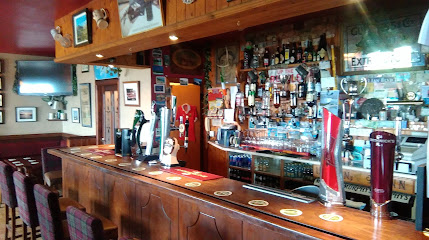
Twomey's Ivy Bar
Discover the heart of Irish culture at Twomey's Ivy Bar, Castletown-Bearhaven's authentic pub experience with delicious food and lively music.
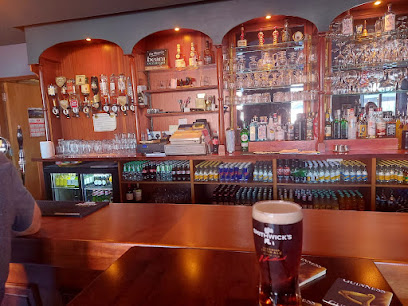
O'Shea's Bar
Discover the essence of Irish hospitality at O'Shea's Bar in Eyeries - a perfect blend of warmth, charm, and local brews.
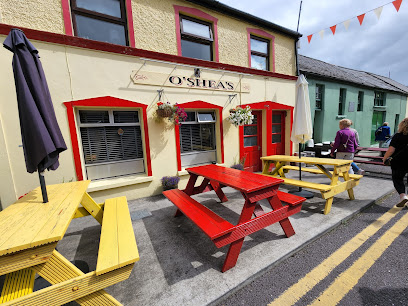
O'Donoghue's Bar
Discover the vibrant atmosphere and rich local culture at O'Donoghue's Bar in scenic Castletown-Bearhaven, County Cork.
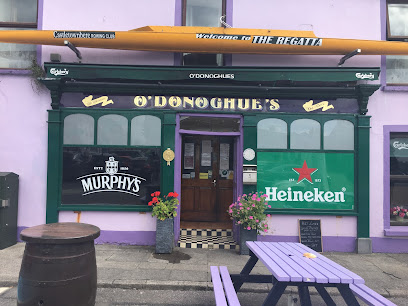
Skippers Bar
Experience the warmth of Skippers Bar in Castletown-Bearhaven, Co. Cork, where great drinks and an inviting atmosphere await.
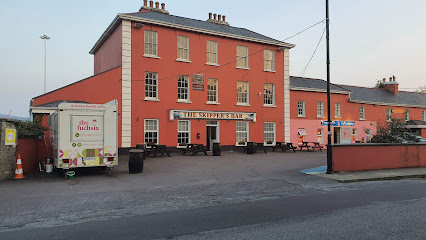
Dessie's Bar
Discover Dessie's Bar in Millcove, a cozy Irish pub offering a delightful selection of drinks and a warm atmosphere perfect for unwinding.
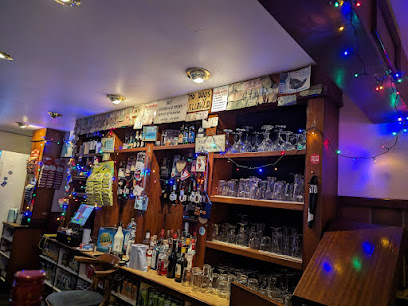
The Lighthouse Bar
Experience the charm of The Lighthouse Bar in Co. Cork, where stunning coastal views meet exceptional drinks and warm Irish hospitality.
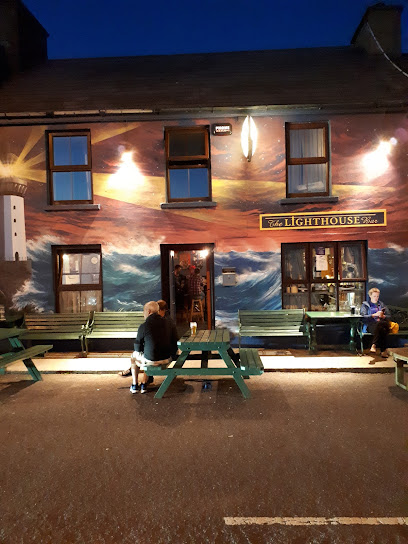
Millbrook Bar
Discover the heart of Irish culture at Millbrook Bar in Castletown-Bearhaven, where local flavors and warm hospitality await every visitor.
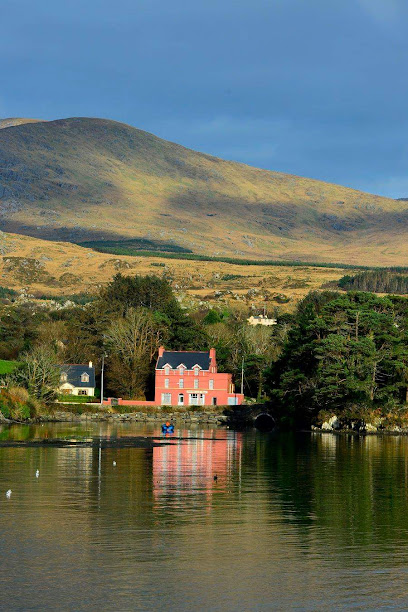
Local Phrases about Beara Peninsula
-
- HelloDia dhuit
[dee-uh gwit] - GoodbyeSlán
[slawn] - YesTá
[taw] - NoNíl
[neel] - Please/You're welcomeLe do thoil
[leh duh hull] - Thank youGo raibh maith agat
[goh rev mah ag-at] - Excuse me/SorryTá brón orm
[taw brohn or-um] - How are you?Conas atá tú?
[kun-us ah-taw too] - Fine. And you?Tá mé go maith. Agus tú?
[taw may guh mah. ah-gus too] - Do you speak English?An labhraíonn tú Béarla?
[ahn low-reen too bay-ur-la] - I don't understandNí thuigim
[nee hug-im]
- HelloDia dhuit
-
- I'd like to see the menu, pleaseBa mhaith liom an menu a fheiceáil, le do thoil
[ba wah l-um on menu a ek-awl, leh duh hull] - I don't eat meatNí ithim feoil
[nee ih-im foh-il] - Cheers!Sláinte!
[slawn-cheh] - I would like to pay, pleaseBa mhaith liom íoc, le do thoil
[ba wah l-um ee-uk, leh duh hull]
- I'd like to see the menu, pleaseBa mhaith liom an menu a fheiceáil, le do thoil
-
- Help!Cabhair!
[kuh-ir] - Go away!Imigh uaim!
[ih-mee oo-im] - Call the Police!Glan an Gharda!
[glawn ahn gawr-duh] - Call a doctor!Glan dochtúir!
[glawn duck-too-ir] - I'm lostTá mé caillte
[taw may kawl-cheh] - I'm illTá mé tinn
[taw may chin]
- Help!Cabhair!
-
- I'd like to buy...Ba mhaith liom ceannach...
[ba wah l-um kyown-ukh] - I'm just lookingNíl mé ach ag féachaint
[neel may akh eg fay-ukh-ent] - How much is it?Cén chostas é?
[kayn khos-tus ay] - That's too expensiveTá sé ró-dháiríre
[taw shay roh-gaw-reer-uh] - Can you lower the price?An féidir leat an praghas a ísliú?
[ahn fay-dir lat an prah-uss a eesh-lee-oo]
- I'd like to buy...Ba mhaith liom ceannach...
-
- What time is it?Cén t-am é?
[kayn th-ahm ay] - It's one o'clockTá sé a haon a chlog
[taw shay ah hayn ah khlog] - Half past (10)Leathuair tar éis (10)
[lah-hoo-ir tar aysh (10)] - MorningMaidin
[mah-jin] - AfternoonTráthnóna
[traw-noh-nuh] - EveningTráthnóna
[traw-noh-nuh] - YesterdayInné
[in-ay] - TodayInniu
[in-yoo] - TomorrowAmárach
[ah-maw-rukh] - 1A haon
[ah hayn] - 2A dó
[ah doh] - 3A trí
[ah tree] - 4A ceathair
[ah kyah-her] - 5A cúig
[ah koo-ig] - 6A sé
[ah shay] - 7A seacht
[ah shakht] - 8A hocht
[ah hukht] - 9A naoi
[ah knee] - 10A deich
[ah deh]
- What time is it?Cén t-am é?
-
- Where's a/the...?Cá bhfuil a...
[kaw wil ah] - What's the address?Cad é an seoladh?
[kahd ay ahn sho-luh] - Can you show me (on the map)?An féidir leat é a thaispeáint (ar an léarscáil)?
[ahn fay-dir lat ay ah hahsh-paint (ar on layr-scaul)] - When's the next (bus)?Cén uair atá an chéad (bus)?
[kayn oo-ir ah-taw ahn khayd (bus)] - A ticket (to ....)Ticead (go dtí ....)
[tick-ad (guh jee)]
- Where's a/the...?Cá bhfuil a...
History of Beara Peninsula
-
Beara Peninsula is home to numerous prehistoric sites, including stone circles and standing stones. The Uragh Stone Circle, located near Gleninchaquin, is one of the most famous, boasting five stones that date back to the Bronze Age. These ancient structures suggest the area was of significant ritual and ceremonial importance.
-
The O'Sullivan Beare clan, one of Ireland's most renowned Gaelic families, dominated Beara Peninsula for centuries. Their stronghold, Dunboy Castle, played a crucial role in the resistance against English rule. In 1602, the castle fell after a fierce siege, marking a turning point in the Nine Years' War.
-
In the early medieval period, Christian monks established several monasteries in Beara Peninsula. Notably, the ruins of Kilcatherine Church, dating back to the 7th century, showcase the area’s rich monastic traditions. These sites served as centers of learning and spirituality.
-
The Beara-Breifne Way is a long-distance trail that traces the historic route taken by Donal Cam O'Sullivan Beare during his epic march in 1603. Following the fall of Dunboy Castle, O'Sullivan Beare led a thousand followers on a harrowing journey from Beara to Leitrim, fleeing English forces. This trail is now a testament to their endurance and resilience.
-
The 19th century saw a boom in copper mining on Beara Peninsula, particularly around the village of Allihies. The mines, operated by the Puxley family, brought economic prosperity but also harsh working conditions. The remains of these mines and the Puxley Mansion stand as reminders of this industrial past.
-
The Great Famine of the mid-19th century had a devastating impact on Beara Peninsula, leading to widespread starvation and emigration. Many local families left their homes in search of better opportunities abroad. The famine's legacy is still felt today, with memorials and deserted villages dotting the landscape.
-
Beara Peninsula has inspired numerous writers and poets, such as the acclaimed Irish poet Seán Ó Ríordáin, who drew on the region's rugged beauty and rich folklore. Local legends, including tales of the mythical Cailleach Beara, an ancient goddess associated with the land, continue to add a mystical allure to the area.
-
In recent decades, Beara Peninsula has experienced a cultural revival, with efforts to preserve the Irish language, traditional music, and heritage. Festivals, workshops, and community projects celebrate the region's unique identity and foster a sense of pride among its residents and visitors alike.
Beara Peninsula Essentials
-
The Beara Peninsula is located in the southwest of Ireland. The nearest major airports are Cork Airport and Kerry Airport. From Cork, the drive to the Beara Peninsula takes about 2 hours, while from Kerry Airport, it takes roughly 1.5 hours. Car rentals are available at both airports. Alternatively, you can take a train from Dublin or Cork to Killarney or Kenmare and then a bus to the peninsula. There are also tour operators that offer guided trips to Beara Peninsula from major cities.
-
While on the Beara Peninsula, renting a car is the most convenient way to explore, as public transportation is limited. There are local bus services that connect major towns like Kenmare, Castletownbere, and Allihies, but they are infrequent. Biking is also a popular option due to the scenic routes and well-maintained trails. Taxis are available but can be costly for long trips. If you're feeling adventurous, hitchhiking is relatively common and generally safe.
-
Ireland uses the Euro (€) as its currency. Credit and debit cards are widely accepted in most establishments on the Beara Peninsula, including hotels, restaurants, and shops. However, it's advisable to carry some cash, especially when visiting smaller villages where card facilities may be limited. ATMs are available in larger towns like Castletownbere and Kenmare.
-
The Beara Peninsula is generally a very safe destination for tourists. Crime rates are low, and violent crime is rare. However, like anywhere, it's wise to exercise standard precautions: don't leave valuables unattended, lock your car, and avoid isolated areas after dark. There are no specific high-crime areas targeting tourists on the peninsula.
-
In case of emergency, dial 112 or 999 to reach emergency services, including police, fire, and medical assistance. There are medical facilities in larger towns like Castletownbere and Kenmare. For minor health issues, pharmacies are available in these towns as well. It is advisable to have travel insurance that covers medical emergencies.
-
Fashion: Do dress in layers and be prepared for sudden changes in weather. Waterproof clothing is essential. Avoid wearing overly flashy or revealing attire. Religion: Do respect local customs, especially when visiting churches or religious sites. Public Transport: Do be punctual and have exact fare if using buses. Don't expect extensive public transport coverage. Greetings: Do greet people warmly; a simple 'hello' or 'hi' is common. A handshake is also appropriate. Eating & Drinking: Do try local specialties like seafood and traditional Irish dishes. Don’t forget to tip in restaurants, usually around 10-15%.
-
To experience Beara Peninsula like a local, visit the local pubs where you can enjoy live traditional Irish music sessions. Engage with locals who are often friendly and eager to share stories and recommendations. Don’t miss hiking the Beara Way, a long-distance walking route offering stunning coastal and mountain views. Visit local craft shops to buy unique artisan products. For a unique experience, take a cable car to Dursey Island, the only cable car in Ireland, which offers breathtaking views.
Trending Landmarks in Beara Peninsula
-
Gleninchaquin Park
-
Healy Pass
-
The Ewe Experience
-
Ballydonegan Beach Allihies
-
Bamboo Park(Páirc Bambú)
-
Derreen Garden(Gairdín Derreen)
-
Garnish Island
-
Priest's Leap
-
Dursey Boat Trips
-
Ardgroom Stone Circle
-
Derreenataggart Stone Circle
-
Bere Island
-
Beara way
-
The Bere Island Heritage & Information centre
-
Caha Pass
Nearby Cities to Beara Peninsula
-
Things To Do in Tralee
-
Things To Do in Dingle
-
Things To Do in Kinsale
-
Things To Do in Cork
-
Things To Do in Limerick
-
Things To Do in Ennis
-
Things To Do in Salthill
-
Things To Do in Galway
-
Things To Do in Waterford
-
Things To Do in Kilkenny
-
Things To Do in Athlone
-
Things To Do in Westport
-
Things To Do in Wexford
-
Things To Do in Bray
-
Things To Do in Sligo








